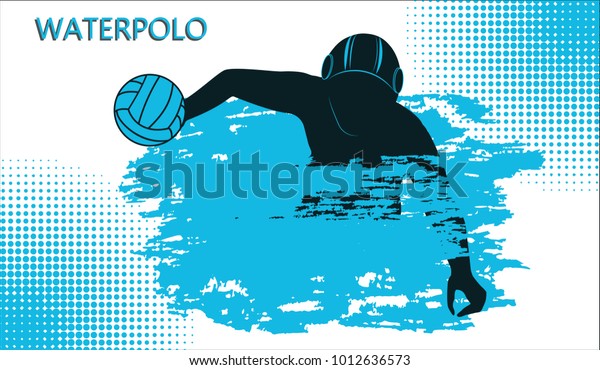Athlete Gambling
- The Black Sox (1919 World Series): “Never before in the history of America’s biggest baseball.
- Of course, plenty of athletes have tarnished their reputations and careers due to their penchants for gambling. Conspiracy theorists, for example, like to claim that Michael Jordan’s first.
The University Record, January 18, 1999
/cdn.vox-cdn.com/uploads/chorus_image/image/44319180/457119210.0.jpg)
46% of people said they gambled in the last month. (Gambling Commission) 18% of those.
All bets are in: Student-athlete gambling is on the rise
By Jane R. Elgass
Seventy-twopercent of student-athletes and 80 percent of male student-athleteshave gambled in some way since entering college, according to theresults of a national survey by the Athletic Department released Jan.11.
The study also shows that nearly 35 percent of allstudent-athletes (45 percent of male student-athletes) have gambledon sports while attending college and that a considerable number ofstudent-athletes acted in ways that call into question the integrityof their contests.
Conducted by Mike Cross and Ann Vollano of the Athletic DepartmentCompliance Office over the past 18 months, the study surveyedDivision I football and men’s and women’s basketballplayers. The response rate to the 3,000 mailed surveys was just over25 percent.
The survey, “The Extent and Nature of Gambling among CollegeStudent Athletes,” was designed to determine the types ofgambling activities in which student-athletes participated and theextent of their participation.
“We are extremely concerned about the effects of gambling atour universities,” said Athletic Director Tom Goss. “Therehas been limited research on this topic, and we hope this reportprovides more impetus for everyone to help control this threat tointercollegiate athletics.”
Athletes Gambling
The introduction to the report notes that “the number ofhighly publicized gambling incidents among student-athletes . . . hasincreased substantially,” citing a 1966 study that showed 25percent of NCAA Division I football and basketball players said theyhad bet on college sports. The U-M survey reports that more than 45percent of male student-athletes have gambled on sports incollege.
“In the past 18 months,” the report’s executivesummary notes, “gambling by college student-athletes has becomeone of the greatest concerns among athletic administrators andcoaches nationally.” Recent incidents have involved players fromArizona State University, Boston College, the University of Colorado,Northwestern University and the University of Notre Dame, amongothers.
Additional findings of the study:
• Casino gambling is a popular activity, with 48.2 percent ofstudent-athletes reporting they wagered at a casino.
• Among all student-athletes, 35 percent have gambled onsports while attending college; 45 percent of male student-athletesgambled on sports.
• More than 5 percent of male student-athletes providedinside information for gambling purposes, bet on a game in which theyparticipated, or accepted money for performing poorly in a game.
These findings, report authors noted, “are cause for concernbecause they directly compromise the integrity of intercollegiatesports. These findings suggest that it is increasingly likely thatsome intercollegiate contests are not being legitimatelycontested.”
• Student athletes who gamble with bookmakers are wageringsubstantial amounts of money. The mean amount of money wagered on asingle sports bet through a bookmaker was $57.25. Student athleteswho gamble on sports with bookmakers are wagering an average of $225per month, the study shows.

The report cites additional findings the authors say “shouldconcern athletic administrators nationwide”:
• Nearly 4 percent of male student-athletes wagered usingparlay cards. “This is an important finding,” the authorsnote, “since parlay cards can be considered a‘gateway’ to more direct and financially risky wageringwith bookmakers.”
• More than 4 percent of male student-athletes said they betdirectly with bookmakers.
• Student-athlete involvement with bookmakers “poses aserious threat to the integrity of intercollegiate sports,” with7.1 percent of male student-athletes having placed bets with abookmaker or having used parlay cards.
Assuming 100 football players on a team, the report states,“it is possible that seven individuals per team are engaged inillegal sports wagering,” the report states. Assuming 15 playerson each men’s basketball team, “it is possible that oneindividual on each team is engaged in illegal sportsgambling.”
• The lesser involvement in gambling by femalestudent-athletes “should not be discounted. As media focus andprofessional opportunities increase, the temptations and problemsthat face male athletes are likely to be encountered byfemales.”
The report authors recommend several areas for futureresearch:
• Survey additional football and basketball players toconfirm the extent and nature of gambling. Find a way to encourageresponses by male basketball players, since this group had a lowresponse rate.
• Study all sports to gain an accurate measure of gamblingbehavior overall, not just in traditional revenue sports.
• Determine the level of gambling involvement amongnon-athlete students.
• Study coaches, administrators, referees and other gameofficials to determine if they are involved in gambling.
• Identify behaviors that could harm the athletic enterpriseor cause administrators to look away when confronted by gamblingwithin their teams or programs.
The authors also note that while the NCAA has recognized theproblem of student-athlete gambling “and done a commendable jobin addressing the issue,” additional steps are necessary. Theseinclude:

• Further education of students on the dangers ofgambling.
• Further education of coaches and administrators on theprevalence of gambling by student-athletes.
• Development of a “high level of awareness andintolerance toward gambling by college student-athletes and athleticdepartment staffs. While educators typically shun‘zero-tolerance’ policies,” the authors noted,“failure to adhere to NCAA Bylaws regarding gambling should bemet with severe consequences, including forfeiture ofeligibility.”